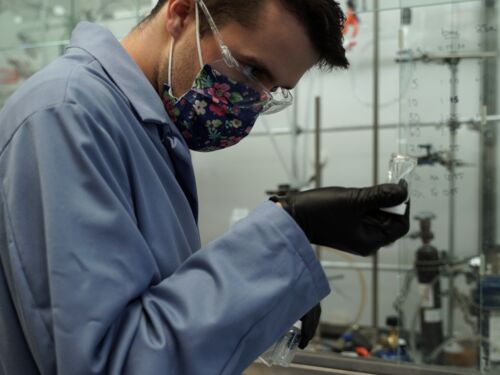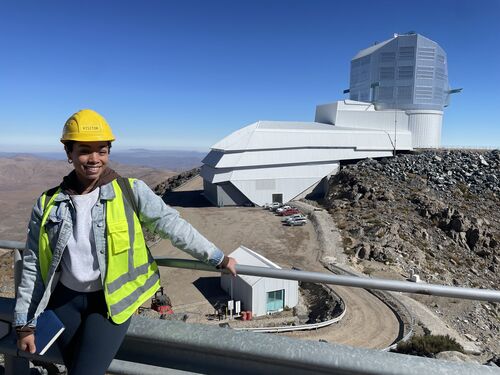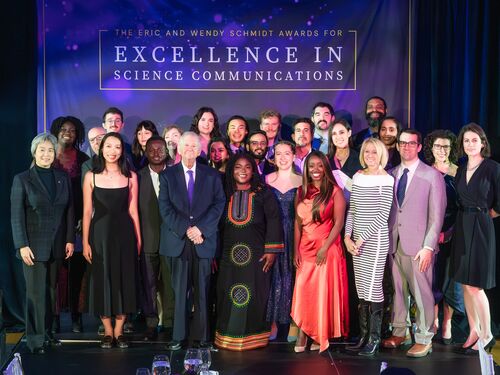National Academies Eric and Wendy Schmidt Awards for Excellence in Science Communications
For individuals who are working on the frontlines of science communication, science journalism, or practicing research, and who can demonstrate the potential or ability to develop high-quality, engaging science communications or reporting.
Closed
News and updates
From Illness to Impact: Turning Science into a Tool for Community Change
Feature Story
Elijah was a 2023 award winner of the National Academies’ Eric and Wendy Schmidt Awards for Excellence in Science Communications with a continued passion for documentary filmmaking, storytelling, public performance, scientific research, communication, impact campaigns, public engagement and restructuring a better society.

From Neutrinos to Narratives: An Interview with Katrina Miller
Feature Story
As a science reporter for the New York Times, Katrina Miller writes about the universe and how the pursuit of understanding it impacts society. Miller was a 2023 award winner of the National Academies’ Eric and Wendy Schmidt Awards for Excellence in Science Communications.

Key dates
March 2 - April 3, 2026: Submissions Accepted
October 2026: Winners Announced
November 2026: Winner Workshop and Recognition Event in Washington, DC
Award details
The National Academies Eric and Wendy Schmidt Awards for Excellence in Science Communications will encourage high-quality science communication and build a robust community of science communicators, science journalists, and research scientists as they continue to demystify complex issues related to science, engineering, and health effectively, inspiring wonder and curiosity about issues that impact daily life and planetary well-being.
In 2026, the program will confer 24 awards totaling $640,000. These awards will go to individuals who were working at the frontlines of science communication or journalism who have developed creative, original work that addresses issues and advances in science, engineering, or medicine for the general public, and who are in career stages or settings where the recognition could have a significant impact on their future career.
Schmidt Sciences will help foster the vibrant and expanding community of science communications awardees by partnering with renowned journalistic institutions to provide ongoing training and professional development opportunities.
16 total number of $20k prizes awarded
8 total number of top prizes ($40K) awarded
= 24 prizes awarded.
Application
Application Process
Selection process
Submission Categories
Submission Categories
FAQs
FAQs
Discover
Events
Right Now & Next Up
Stay in the loop with can’t-miss sessions, live events, and activities happening over the next two days.
NAS Building Guided Tours Available!
Participate in a one-hour guided tour of the historic National Academy of Sciences building, highlighting its distinctive architecture, renowned artwork, and the intersection of art, science, and culture.
